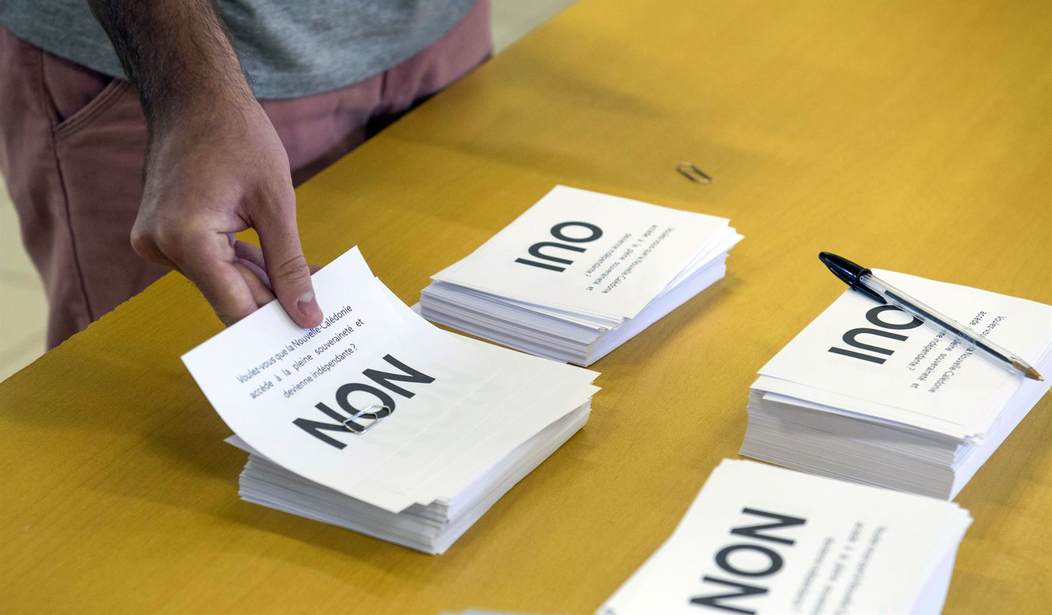For the third time in four years, voters in the South Pacific island nation of New Caledonia will be going to the polls this weekend to consider a referendum that would declare their independence from France. They have been a republic of France for more than 170 years, first annexed in 1853, but recent generations of the island’s original natives have been increasingly pushing for autonomy. This anticolonialism movement has been closely watched by foreign policy analysts, particularly coming at a time when China is seeking to forge new ties and expand its sphere of influence in the region, both politically and militarily. But despite having come close to voting for independence during the previous two votes, there is no assurance that it will happen this time. The traditionally pro-independence groups that have supported the measure say they are refusing to participate this time, citing French interference and the effects that the pandemic has had on their efforts. (Associated Press)
Voters in the South Pacific archipelago of New Caledonia are set to decide Sunday whether to break away from France, a referendum that is important for French geopolitical ambitions and is being closely watched amid growing Chinese influence in the region.
But pro-independence forces are refusing to take part, accusing the French government of trying to rush through the vote.
The COVID-19 crisis complicated the campaign for the referendum, the third and last such vote foreseen as part of decades of decolonization efforts. The process is aimed at settling tensions between native Kanaks seeking independence and those who want the territory to remain part of France.
This is the third and presumably final referendum scheduled on the subject. In 2018, 43.6% of voters supported independence, with 46.7 percent favoring it in 2020. But when the pandemic finally broke out on the islands in September, the New Caledonians relied very heavily on France for medical and financial help. This fact has been highlighted during the current campaign as a reason that the republic should remain under French protection. That’s the reason that most pro-independence groups don’t want to participate in the referendum.
New Caledonia won an increased level of autonomy a few decades ago, but France still maintained control in areas of “defense, public security, justice, foreign affairs, and currency.” (That really sounds like most of the major functions of government, doesn’t it?) But should they vote for independence, the pressing question is what would come next.
As mentioned above, China is watching this vote closely and has already signaled their interest in establishing closer ties with New Caledonia. And they bring plenty to the table in terms of foreign aid and military capabilities. Losing effective control of the islands to China would be a significant blow to both France and the rest of the western world. When you consider New Caledonia’s location between Australia and Fiji, it would be a key logistical position in any potential military conflict.
It’s bad enough that the United States is teetering on the verge of ceding the Marshall Islands to China. More recently, and much closer to home, Nicaragua broke its diplomatic ties with Taiwan and switched its official allegiance to mainland China. The Chinese Communist Party is slowly but surely extending its sphere of influence around the Pacific like an octopus. At the same time, their Belt and Road initiative is pushing Chinese influence and control into western Asia and Africa. They are effectively taking over any number of countries without firing a shot by buying their way into control.
If the resurgent French influence over New Caledonia as a result of the pandemic turns out to cause this referendum to fail, it may wind up being one of the few examples where this virus actually produced a positive result. But that situation won’t hold forever. Sooner or later the people of New Caledonia will probably declare full independence. And then the west will be forced to negotiate with them quickly to avoid another case of China absorbing the entire western Pacific basin.








Join the conversation as a VIP Member